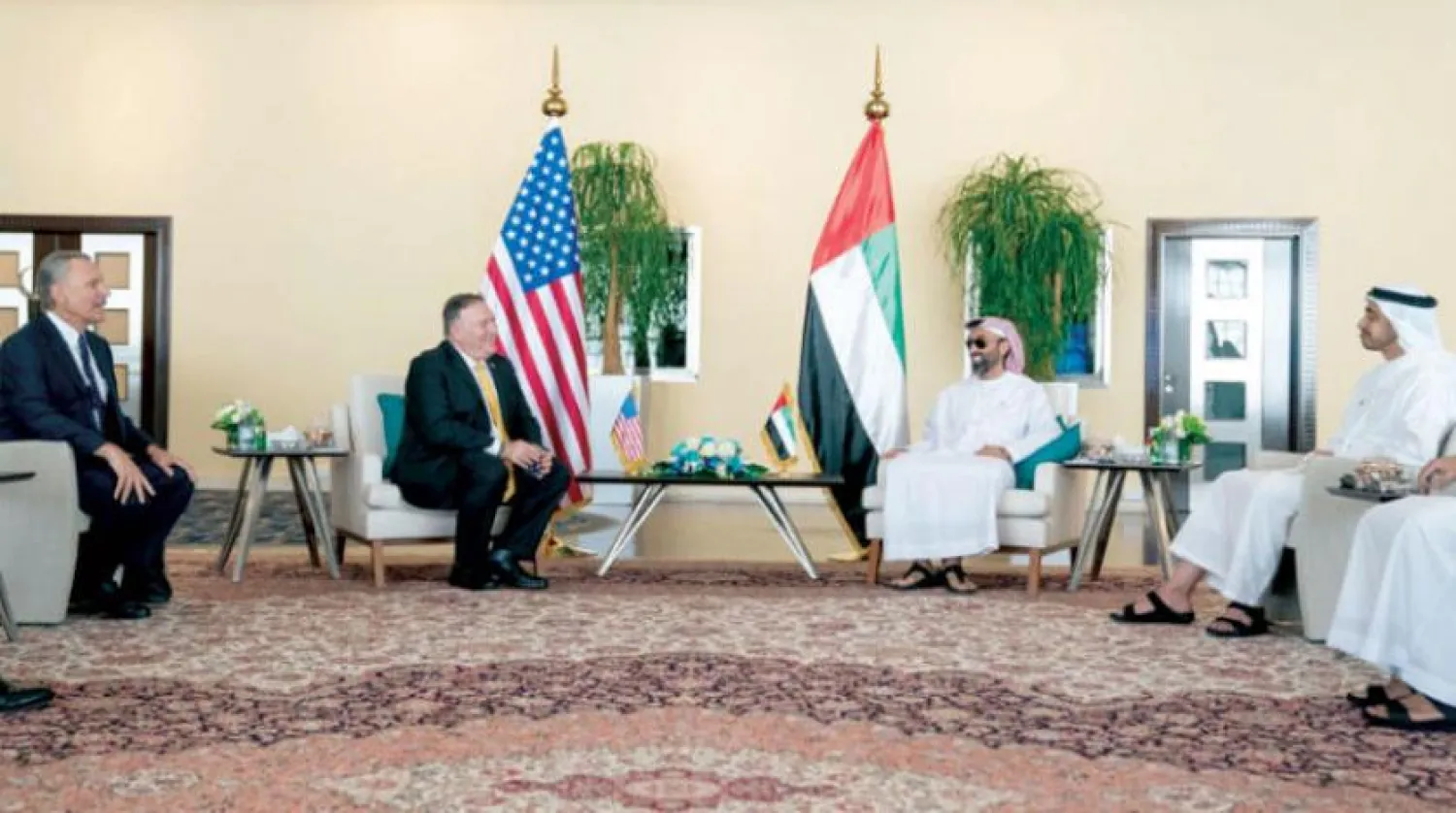US Secretary of State Mike Pompeo discussed the Libyan conflict and countering Iranian regional influence with his Emirati counterpart during a brief visit to the United Arab Emirates on Wednesday.
Pompeo, who this week also visited Jerusalem, Sudan and Bahrain, sought to build on the momentum of the agreement between the UAE and Israel for regional peace, he said in a tweet after arriving in the UAE.
Pompeo and UAE Foreign Minister Sheikh Abdullah bin Zayed al-Nahyan spoke about support for "de-escalation and a lasting ceasefire in Libya, Gulf unity and countering Iran's malign influence in the region," the State Department said.
Pompeo also met with UAE National Security Advisor Sheikh Tahnoun bin Zayed al-Nahyan.
WAM said they reviewed a number of regional and international issues of concern in addition to the prospects of further consolidating the strategic relations between the two countries.
“They explored the latest developments relating to the global fight against COVID-19 and the two countries' efforts to stem the fallout of the pandemic,” it said.
“Sheikh Tahnoun and Pompeo also discussed the peace accord between the UAE and Israel and its key role in advancing peace and stability in the region,” the news agency added.









